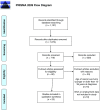Young adult cancer survivors and work: a systematic review
- PMID: 28478587
- PMCID: PMC5671547
- DOI: 10.1007/s11764-017-0614-3
Young adult cancer survivors and work: a systematic review
Abstract
Context: Sixty-three percent of cancer survivors continue to work, or return to work after treatment. Among this population, work ability and challenges encountered in the workplace by young adult cancer survivors have not been well established.
Purpose: The purposes of the study are to describe what is currently known about work-related issues for young adult cancer survivors diagnosed between ages 15 and 39, to identify gaps in the research literature, and to suggest interventions or improvements in work processes and occupational settings.
Methods: A narrative review of articles using PubMed, CINAHL, and PsychInfo was conducted without date limitations. Search phrases included young adult cancer survivors, long-term cancer survivors, young adults affected by cancer, further combined with key terms employment, work, and occupationally active. Inclusion criteria for publications were young adult cancer survivors initially diagnosed between the ages of 15 and 39, data about work or employment was presented, and articles written in English.
Results: Twenty-three publications met the inclusion criteria. Work-related issues included the potential for reduced work productivity from cancer-changed physical and cognitive functional ability that affected income, and resulted in distress. Coping style, support systems, and changing perspectives about work and life in general were also influential on career decisions among young adult cancer survivors.
Conclusions: More research is needed to study interventions to better manage health changes in young adult cancer survivors within the context of the workplace. Since financial hardship has been shown to be especially high among young cancer survivors, employment is essential to ensure payment of cancer-associated costs and continued medical care.
Implications for cancer survivors: While young adult cancer survivors may initially grapple with cancer-related physical and psychosocial changes that impact work productivity or influence choice of occupation, employment appears to enhance overall quality of life.
Keywords: Employment; Occupational health; Work; Young adult cancer survivors.
Conflict of interest statement
Funding
Dawn S. Stone, the first author, is a PhD candidate funded by a training grant from the National Institute for Occupational Safety and Health (Grant 5T42OH008412-09).
Conflict of interest
The authors declare that they have no conflict of interest.
Ethical approval
This article is a systematic review of scholarly literature and did not require involvement of human participants.
Informed consent
This systematic review did not involve any contact with participants.
Figures
Similar articles
-
A rapid and systematic review of the clinical effectiveness and cost-effectiveness of paclitaxel, docetaxel, gemcitabine and vinorelbine in non-small-cell lung cancer.Health Technol Assess. 2001;5(32):1-195. doi: 10.3310/hta5320. Health Technol Assess. 2001. PMID: 12065068
-
Survivor, family and professional experiences of psychosocial interventions for sexual abuse and violence: a qualitative evidence synthesis.Cochrane Database Syst Rev. 2022 Oct 4;10(10):CD013648. doi: 10.1002/14651858.CD013648.pub2. Cochrane Database Syst Rev. 2022. PMID: 36194890 Free PMC article.
-
Interventions for promoting habitual exercise in people living with and beyond cancer.Cochrane Database Syst Rev. 2018 Sep 19;9(9):CD010192. doi: 10.1002/14651858.CD010192.pub3. Cochrane Database Syst Rev. 2018. PMID: 30229557 Free PMC article.
-
Progressive resistive exercise interventions for adults living with HIV/AIDS.Cochrane Database Syst Rev. 2004 Oct 18;(4):CD004248. doi: 10.1002/14651858.CD004248.pub2. Cochrane Database Syst Rev. 2004. PMID: 15495092
-
Welfare-to-work interventions and their effects on the mental and physical health of lone parents and their children.Cochrane Database Syst Rev. 2018 Feb 26;2(2):CD009820. doi: 10.1002/14651858.CD009820.pub3. Cochrane Database Syst Rev. 2018. PMID: 29480555 Free PMC article.
Cited by
-
Financial burdens during the COVID-19 pandemic are related to disrupted healthcare utilization among survivors of adolescent and young adult cancers.J Cancer Surviv. 2023 Dec;17(6):1571-1582. doi: 10.1007/s11764-022-01214-y. Epub 2022 May 17. J Cancer Surviv. 2023. PMID: 35579665 Free PMC article.
-
Short- and long-term impact of cancer on employment and financial outcomes of adolescents and young adults (AYAs): a large population-based case-control registry study in the Netherlands.ESMO Open. 2022 Aug;7(4):100521. doi: 10.1016/j.esmoop.2022.100521. Epub 2022 Jun 27. ESMO Open. 2022. PMID: 35772237 Free PMC article.
-
Impact of flexible work arrangements on job resignation after cancer diagnosis among Japanese young adult cancer survivors.J Cancer Surviv. 2024 Dec;18(6):1799-1810. doi: 10.1007/s11764-023-01421-1. Epub 2023 Jul 22. J Cancer Surviv. 2024. PMID: 37480472
-
General Health Care Utilization Among Nonelderly Cancer Survivors Before and After Affordable Care Act Implementation: Early Results.JCO Oncol Pract. 2020 Jul;16(7):e581-e589. doi: 10.1200/JOP.19.00498. Epub 2020 Feb 18. JCO Oncol Pract. 2020. PMID: 32069189 Free PMC article.
-
Getting back on track after treatment of cancer: A qualitative interview study of cancer survivors' experiences.PLoS One. 2025 Jan 9;20(1):e0313984. doi: 10.1371/journal.pone.0313984. eCollection 2025. PLoS One. 2025. PMID: 39787181 Free PMC article.
References
-
- National Cancer Institute. A snapshot of adolescent and young adult cancers. 2014. Retrieved from: http://www.cancer.gov/research/progress/snapshots/adolescent-young-adult.
Publication types
MeSH terms
LinkOut - more resources
Full Text Sources
Other Literature Sources
Medical
Miscellaneous



